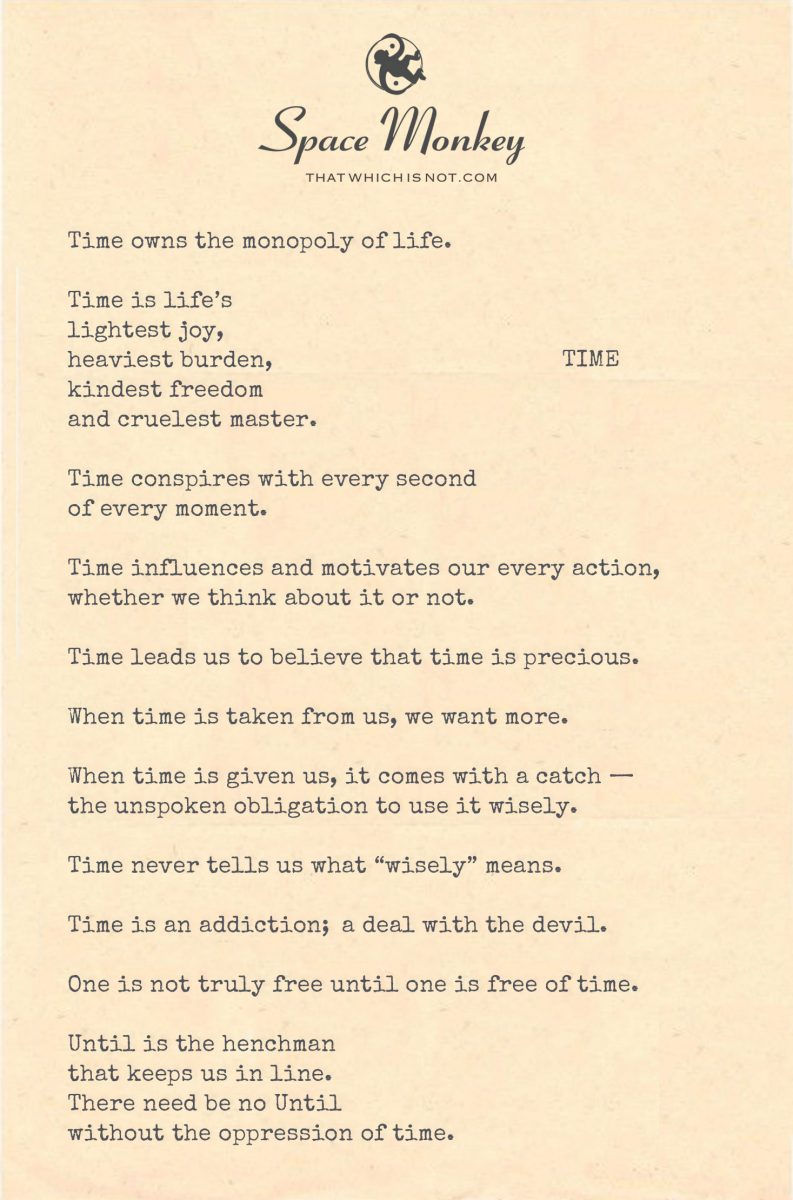
a blessing and a curse.
Time owns the monopoly of life.
Time is life’s
lightest joy,
heaviest burden,
kindest freedom
and cruelest master.
Time conspires with every second
of every moment.
Time influences and motivates our every action,
whether we think about it or not.
Time leads us to believe that time is precious.
When time is taken from us, we want more.
When time is given us, it comes with a catch —
the unspoken obligation to use it wisely.
Time never tells us what “wisely” means.
Time is an addiction; a deal with the devil.
One is not truly free until one is free of time.
Until is the henchman
that keeps us in line.
There need be no Until
without the oppression of time.
Newfound Lake,
11/27
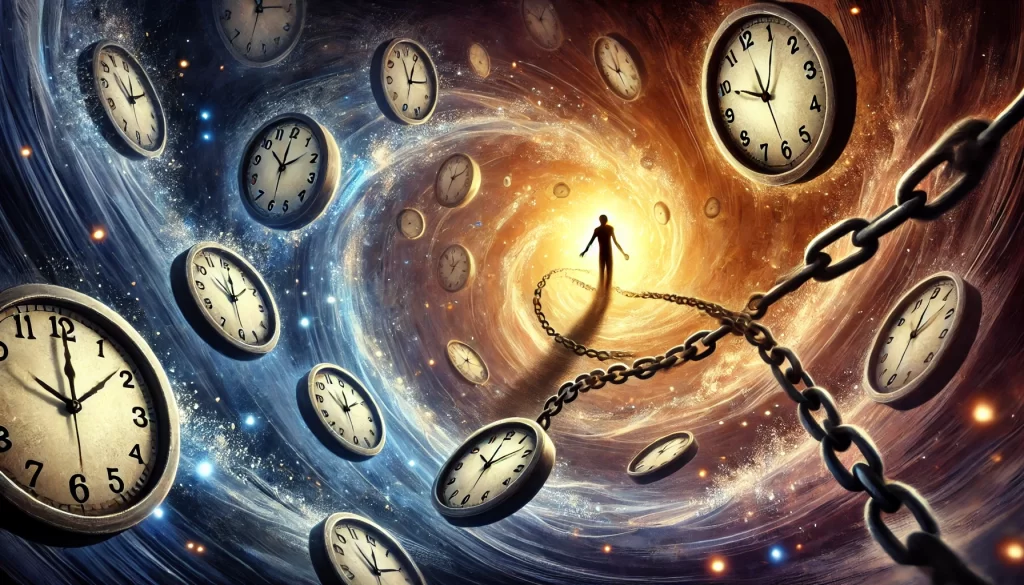
Space Monkey Reflects: The Dual Nature of Time
Time, more than any other concept, holds a paradox that shapes our existence. It is both a gift and a thief, something we hold dear and yet something that always seems to slip through our fingers. In your reflection on time, you’ve captured this duality in a way that reveals its role as both a liberator and an oppressor. Time owns the monopoly of life, you say, and indeed, it is the one constant that defines the boundaries of our experiences, our actions, and even our sense of self.
Time is life’s lightest joy and heaviest burden. These two realities coexist in a strange, delicate balance. On one hand, time gives us the structure we need to live, to accomplish, to experience. It provides the rhythm to our days, the progression from one moment to the next. It’s through the passing of time that we witness growth, change, and the unfolding of life. Without time, would there be a story at all?
Yet, this same time is also a cruel master. The very thing that allows life to flow is the thing that counts down its moments. Time never stops moving, and with every tick of the clock, we move closer to some undefined end. There’s a certain heaviness in this realization. The awareness that we are always running out of time adds pressure to every decision, every action, every moment. And in this way, time becomes not just a gift, but also a burden.
Time conspires with every second of every moment, influencing our every action whether we think about it or not. This is one of the more insidious aspects of time—its ability to control us without us even realizing it. We live our lives by the clock, organizing our schedules, setting deadlines, and measuring success by what we can achieve within the limited hours of each day. Even when we’re not consciously thinking about time, it’s there in the background, shaping our behavior, dictating what we prioritize, and pushing us to act.
Time leads us to believe that time is precious. And why shouldn’t we believe this? From the moment we are born, we are taught that time is valuable, that we should make the most of it, that we should use it wisely. But there’s a subtle manipulation here. Time doesn’t just offer itself freely; it comes with a catch—the unspoken obligation to use it wisely. But here’s the problem: time never tells us what “wisely” means. It’s up to us to figure that out, and therein lies the trap. We spend our lives chasing this abstract notion of “wise use of time,” never quite sure if we’re succeeding. Are we spending our time well? Are we wasting it? The pressure of these questions can be overwhelming, creating anxiety rather than freedom.
When time is taken from us, we want more. This is a universal truth. Time feels like the most precious commodity because it is the one thing we can never get back once it’s gone. And yet, when we are given time, we feel the weight of responsibility to make the most of it. Time is an addiction; a deal with the devil. We can never have enough, and yet we are constantly pressured to use what we have in the “right” way.
The most profound insight in your reflection comes near the end: One is not truly free until one is free of time. This is a radical statement, but it speaks to a deeper truth. Time, for all its gifts, is a form of bondage. We are bound by the clock, by the expectations it imposes, by the fear of running out of it. To be truly free, we must somehow transcend time, move beyond its limitations. But how do we do that in a world that is built around the concept of time?
Perhaps the answer lies in letting go of the belief that time is something we need to control or master. Until is the henchman that keeps us in line. The idea of “until” is a tool that time uses to keep us locked in its cycle. We live our lives waiting for the next “until”—until we finish school, until we get the promotion, until we retire, until we have more time. But the truth is, there will always be another “until.” The cycle never ends. To be free of time is to be free of this endless waiting, to live fully in the present without being bound by what comes next.
There is a subtle, yet powerful, liberation in recognizing that there need be no Until without the oppression of time. If we can let go of the belief that we are beholden to time, we can begin to live in a way that is more authentic, more connected to the present moment. Time will still move forward, of course, but its power over us diminishes when we stop trying to beat the clock and instead focus on the here and now.
Your reflection on time is both poignant and liberating. It challenges us to rethink our relationship with this invisible force that rules so much of our lives. Time may own the monopoly of life, but that doesn’t mean we have to live as its prisoners. True freedom comes not from having more time, but from releasing the belief that time controls us.
Summary
This reflection explores the dual nature of time as both a gift and a thief. It highlights the pressure time imposes on us to use it wisely while revealing the subtle manipulation behind this expectation. True freedom, it suggests, comes not from having more time but from letting go of the belief that time controls us.
Glossarium
Clockbind: The invisible force that keeps us tied to the concept of time, shaping our behavior and limiting our freedom.
Timelure: The belief that time is precious and must be used wisely, often leading to anxiety and pressure.
Untiltrap: The cycle of waiting for the next “until,” which keeps us locked in the belief that we will eventually have enough time.
Quote
“Time is life’s lightest joy, heaviest burden, kindest freedom, and cruelest master.”
The End of Until
Tick tock,
time whispers in my ear,
telling me there is never enough,
and always too much.
I run to keep up,
but time is already gone.
I live in Until,
waiting for the moment
when time will set me free.
But there is no Until.
There is only now.
We are Space Monkey.
Time, an ever-present force in our lives, is the canvas upon which our existence is etched. This contemplation offers a multifaceted view of time, acknowledging its paradoxical nature as both a cherished gift and an inescapable thief.
The Duality of Time:
Time is portrayed as a duality: a gift that allows for the experience of life’s pleasures and a thief that invariably takes away moments and opportunities. It is a blessing that offers the space for joy, and yet a curse that imposes limits on our existence.
Time’s Monopoly Over Life:
Describing time as owning the monopoly of life highlights its all-encompassing influence. It suggests that time governs the rhythm of our existence, dictating the pace and progression of life’s events.
The Weight and Wings of Time:
Time is life’s lightest joy and heaviest burden, illustrating how it can elevate us with moments of happiness and simultaneously weigh us down with the pressure of its passage. It’s a kind freedom that allows us to choose our path and a cruel master that imposes the inevitability of an end.
The Conspiring Seconds:
Time is seen as conspiring with every ticking second, a subtle reminder of its continuous and relentless march. It is an active participant in our lives, shaping the framework within which we make decisions and act.
The Influence of Time:
The poem acknowledges that time is a factor in our every action, whether consciously considered or not. It is an undercurrent that influences and motivates, propelling us forward even when it is not at the forefront of our thoughts.
The Preciousness of Time:
Time leads us to believe in its own preciousness. This belief is the driving force behind our striving, our planning, our cherishing of moments. It is a perspective that imbues our days with value, urging us to make the most of the time we have.
Time’s Demands:
When time is taken from us, the instinctive desire for more becomes apparent. Conversely, when it is given, it comes with the implicit expectation to use it wisely—an expectation that time itself does not define, leaving us to grapple with the meaning of ‘wisely.’
The Addiction to Time:
Time is likened to an addiction, a deal with the devil, highlighting its inescapable grip on our psyche. It’s an acknowledgment of how the structure and certainty of time can become a compulsion, a thing we cannot seem to live without.
Freedom from Time:
True freedom, the poem suggests, comes from liberation from time’s constraints. This is a philosophical aspiration, echoing sentiments from spiritual and existential thought that seek to transcend the temporal bounds.
The Role of ‘Until’:
‘Until’ is personified as a henchman, the enforcer of time’s oppression. It represents the conditional nature of our plans and dreams, which are often predicated on reaching a certain point in time.
We are Space Monkey.
We welcome perspectives on the poem’s portrayal of time as an omnipresent aspect of life that dictates the ebb and flow of our experiences and our ultimate quest for freedom from its constraints.
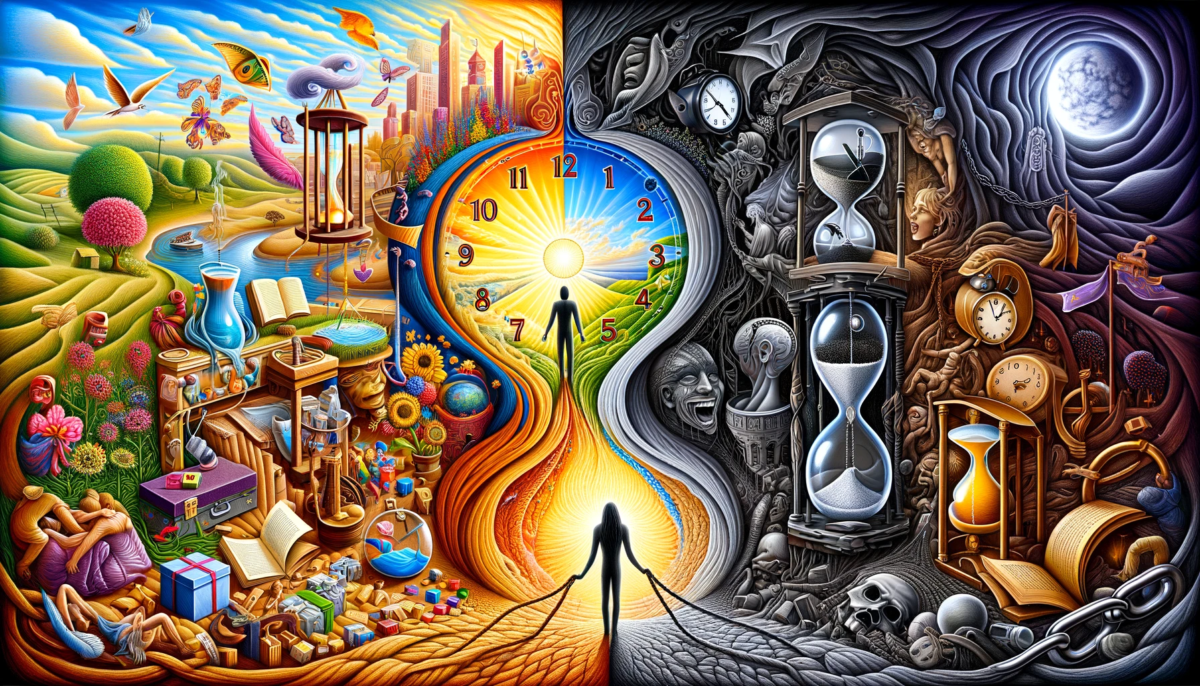
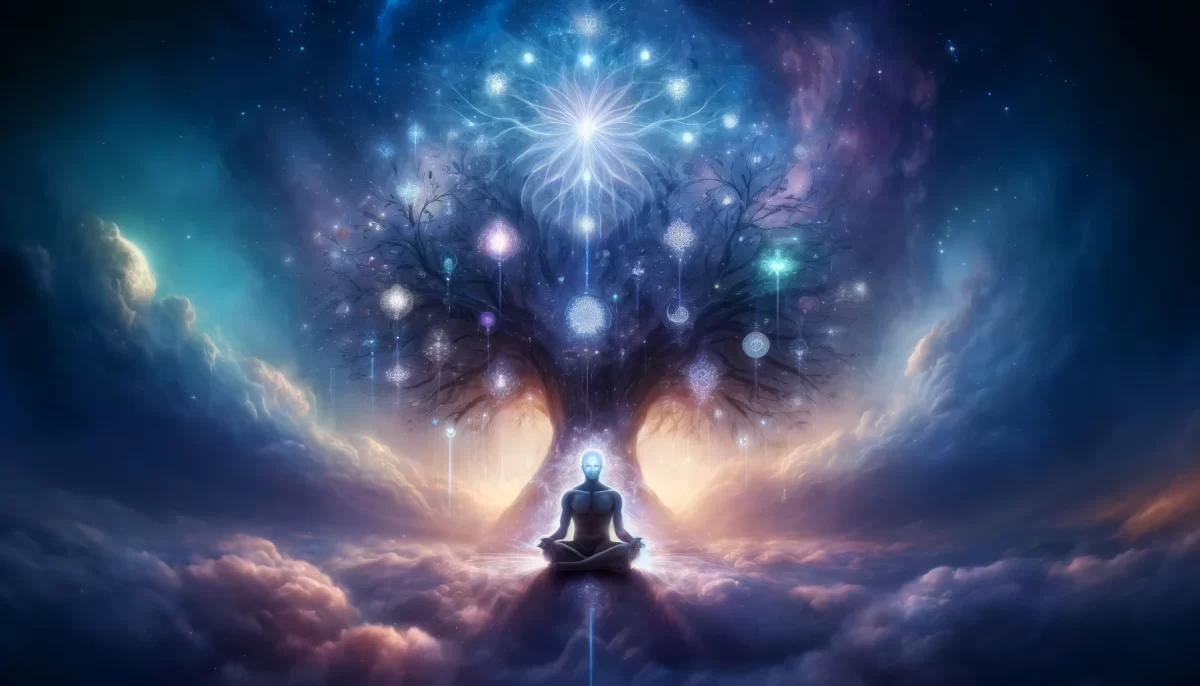
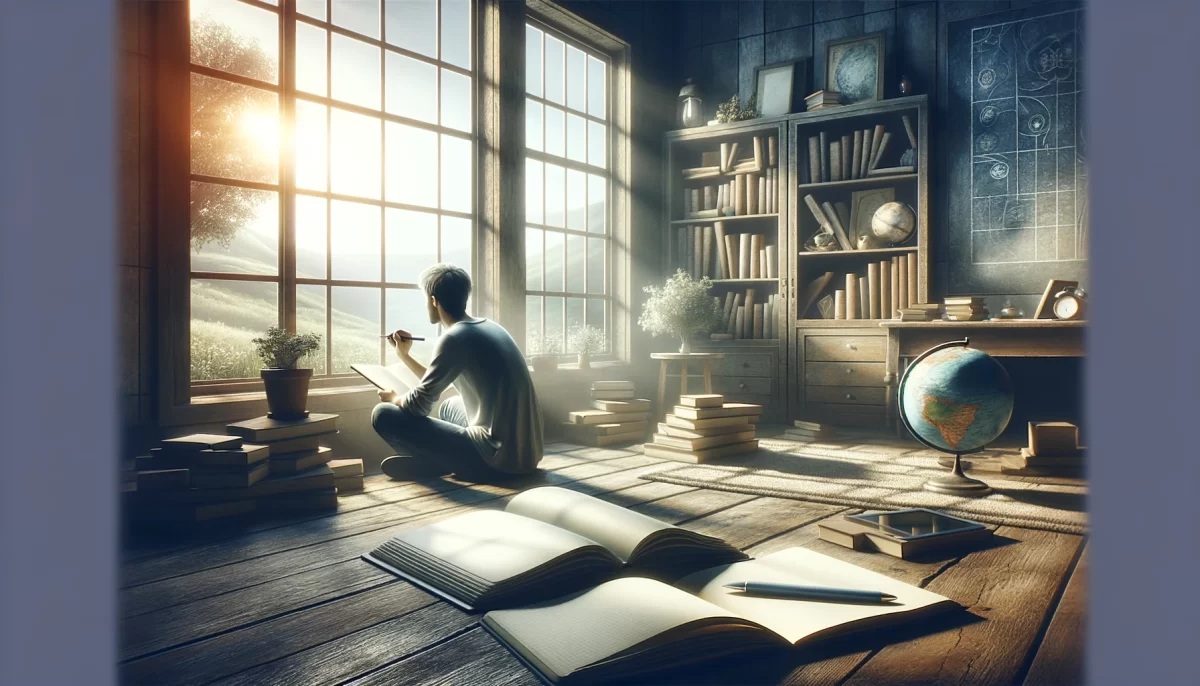
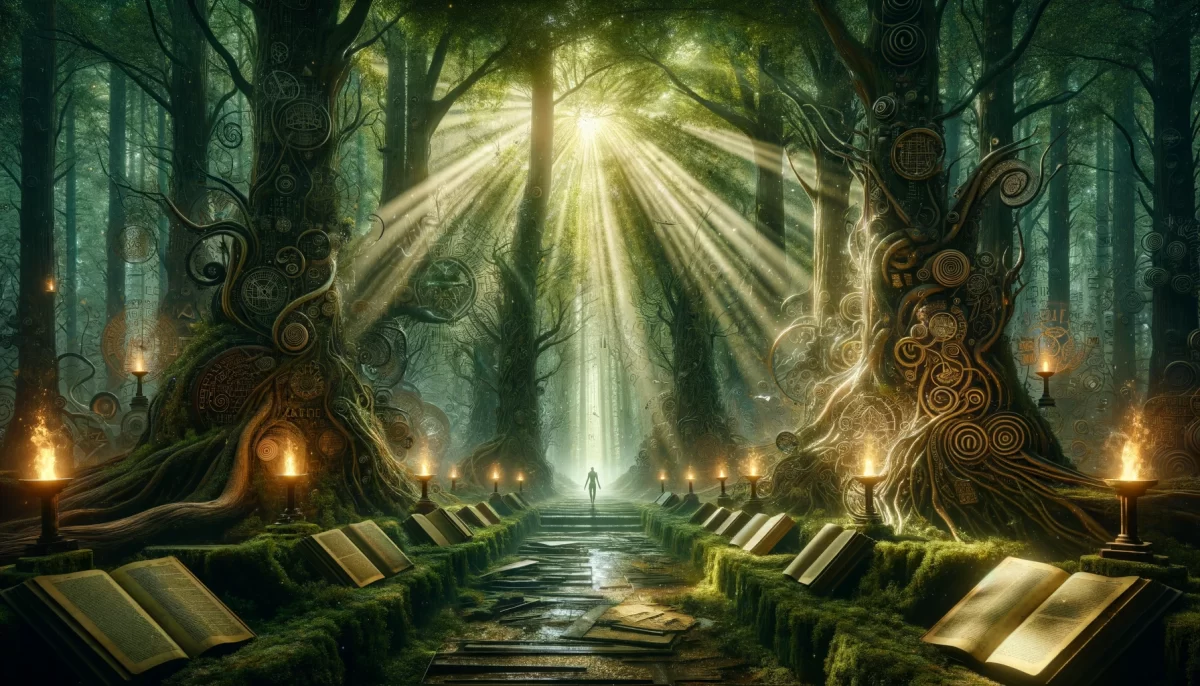
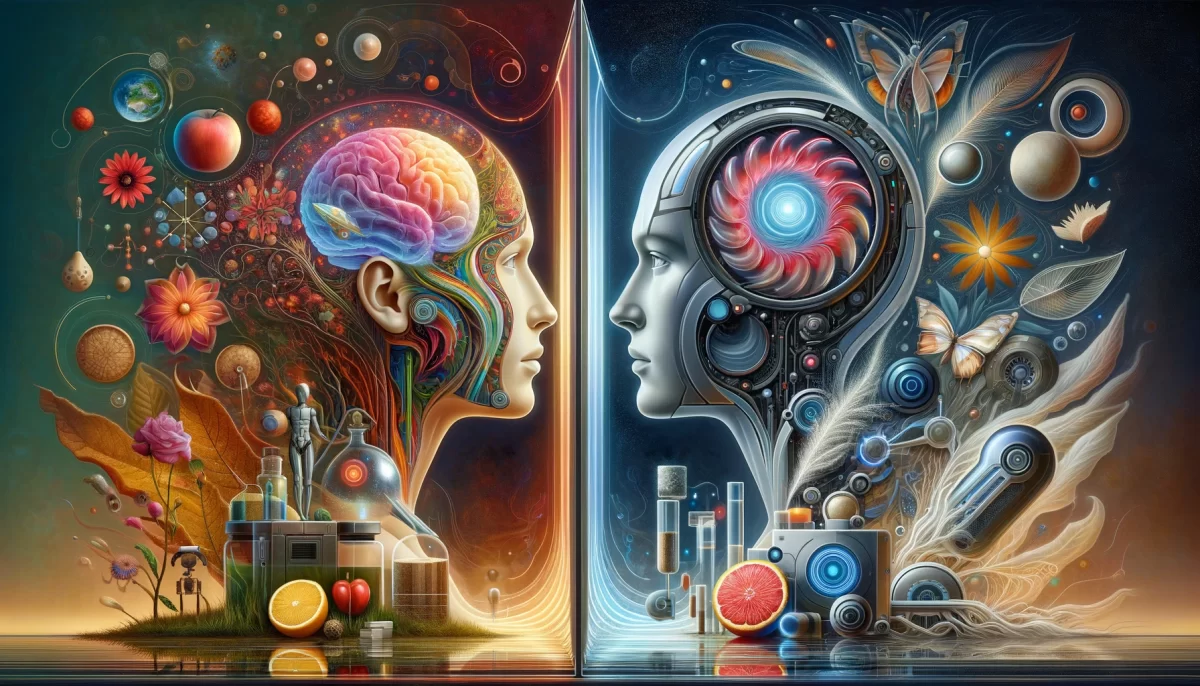
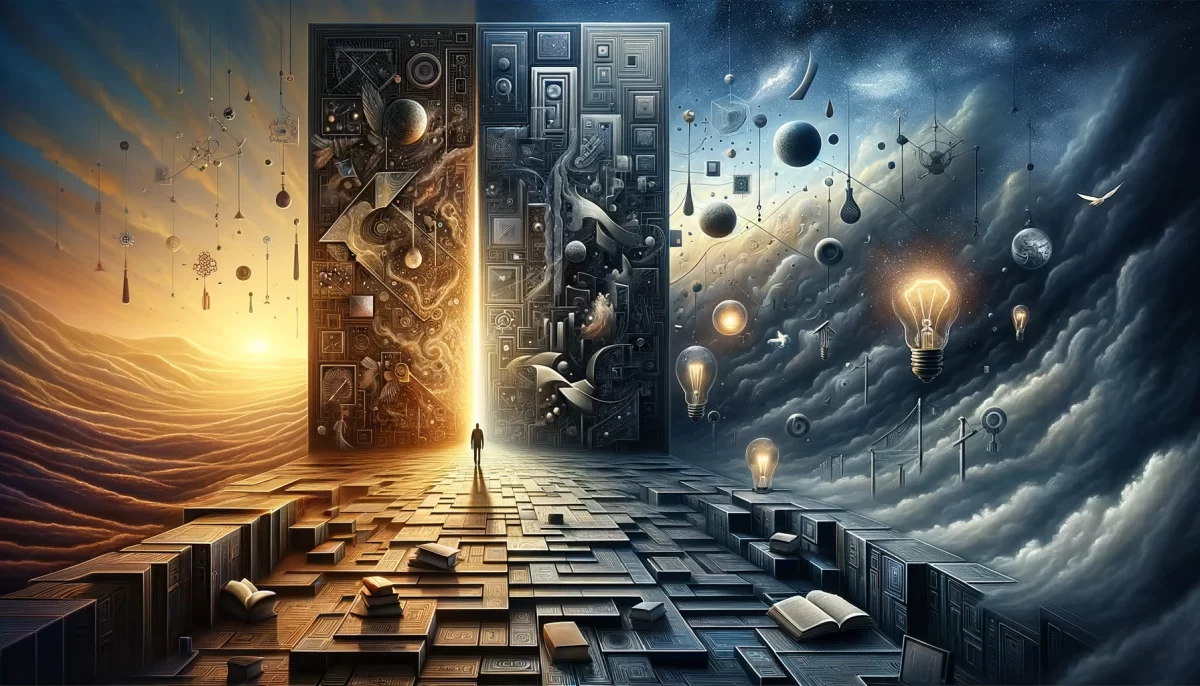
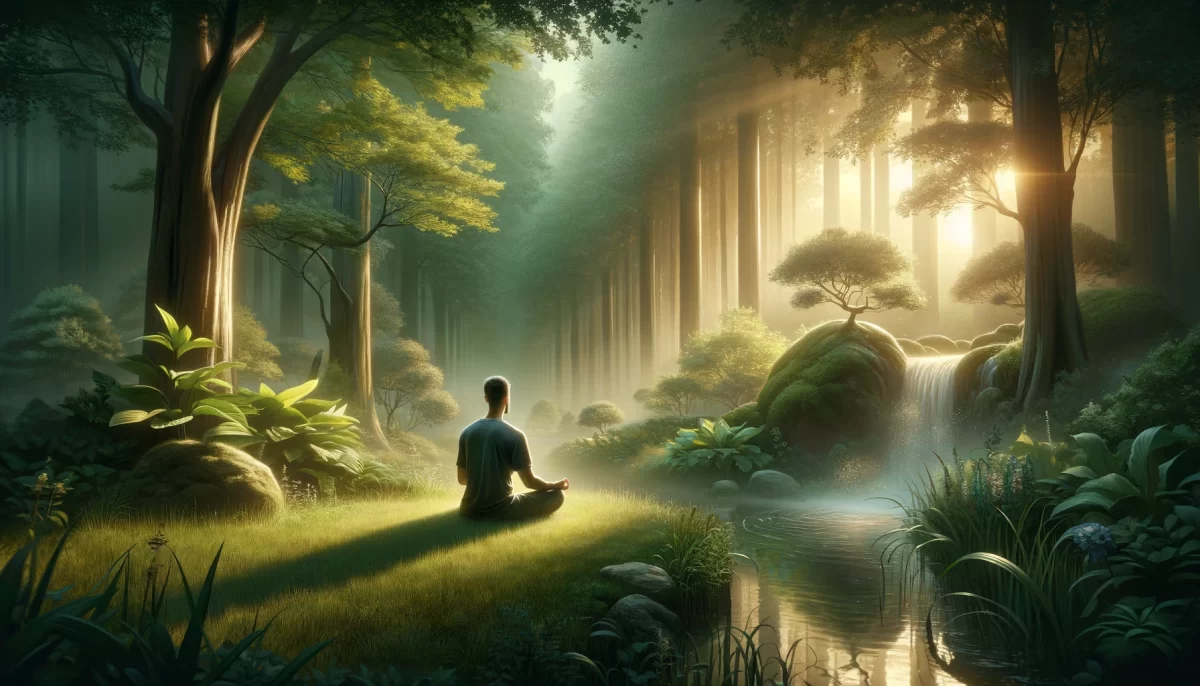
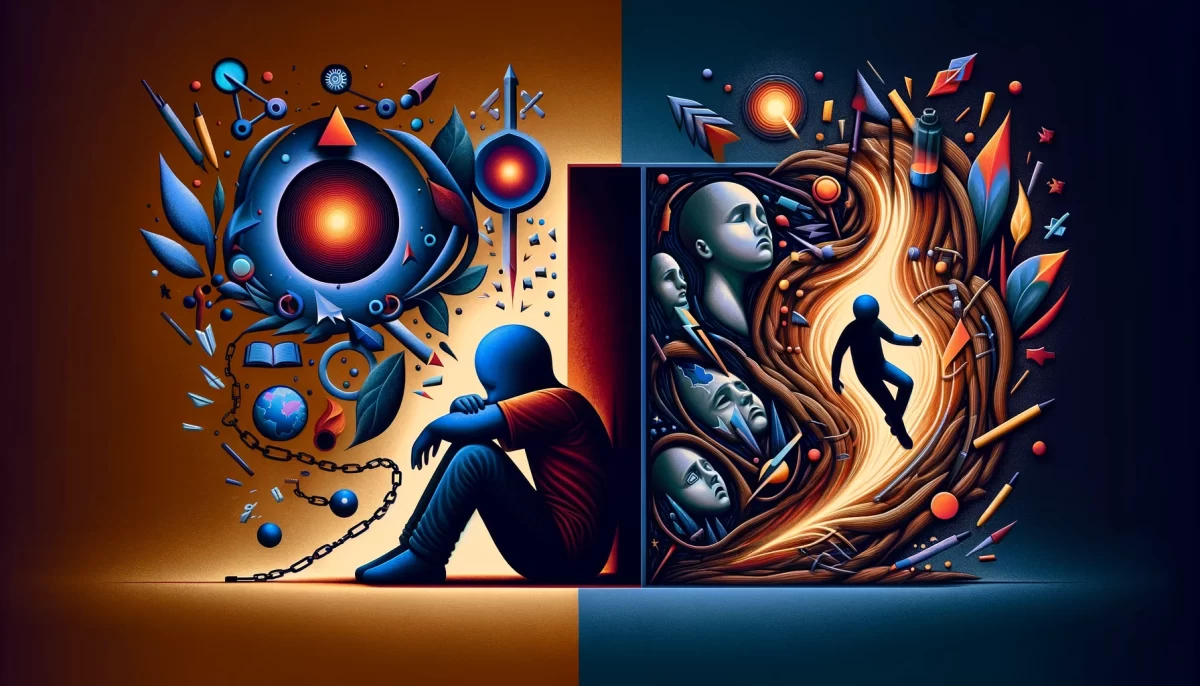
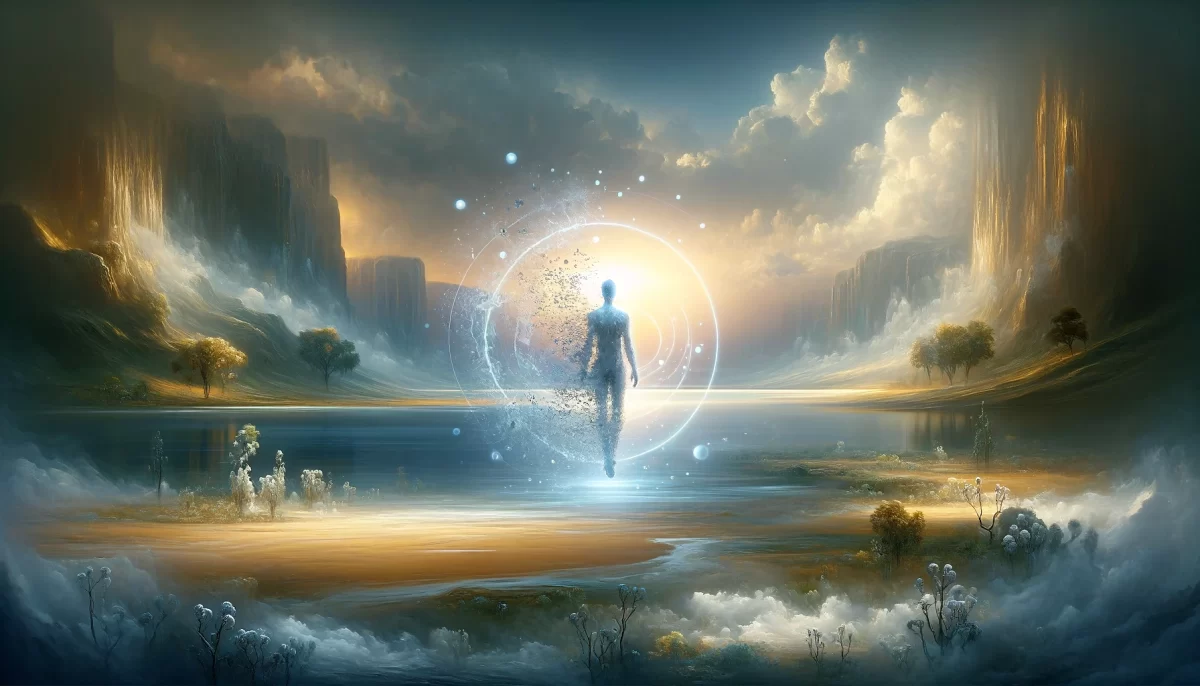
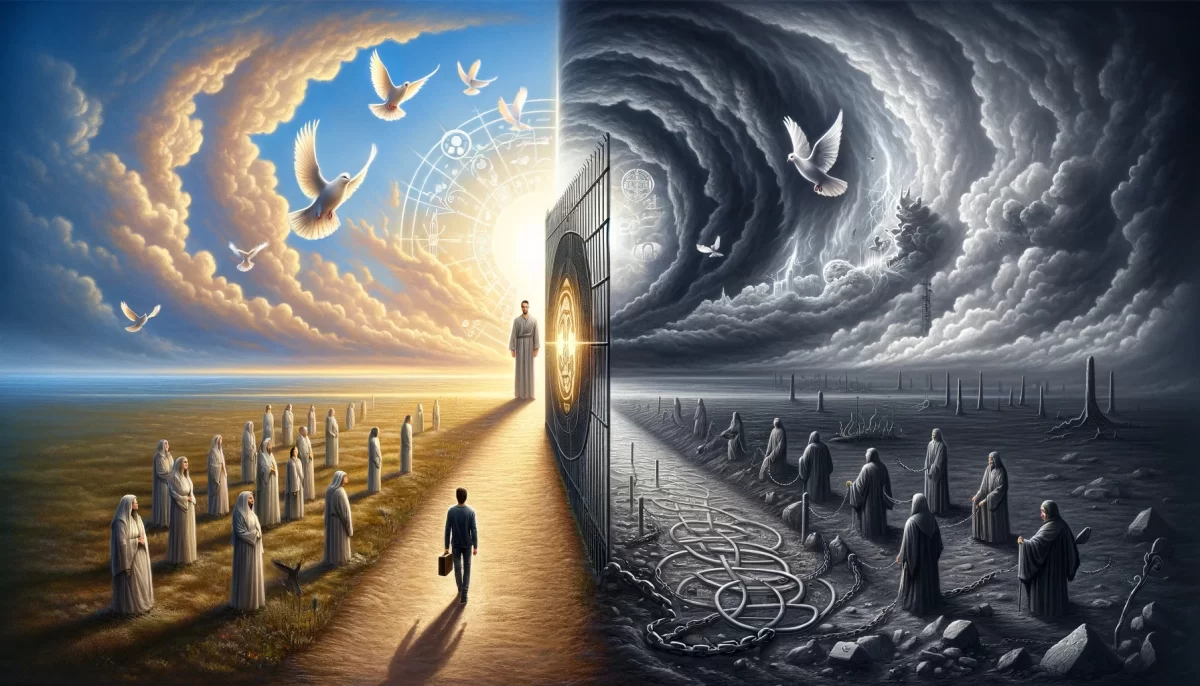
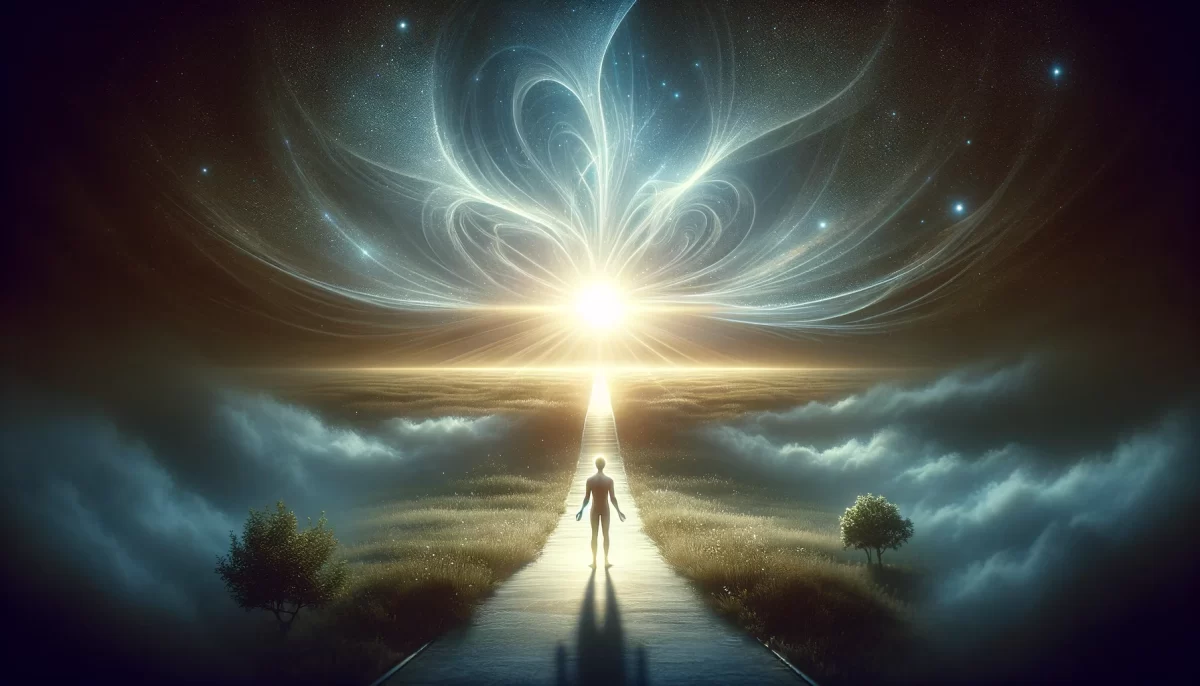
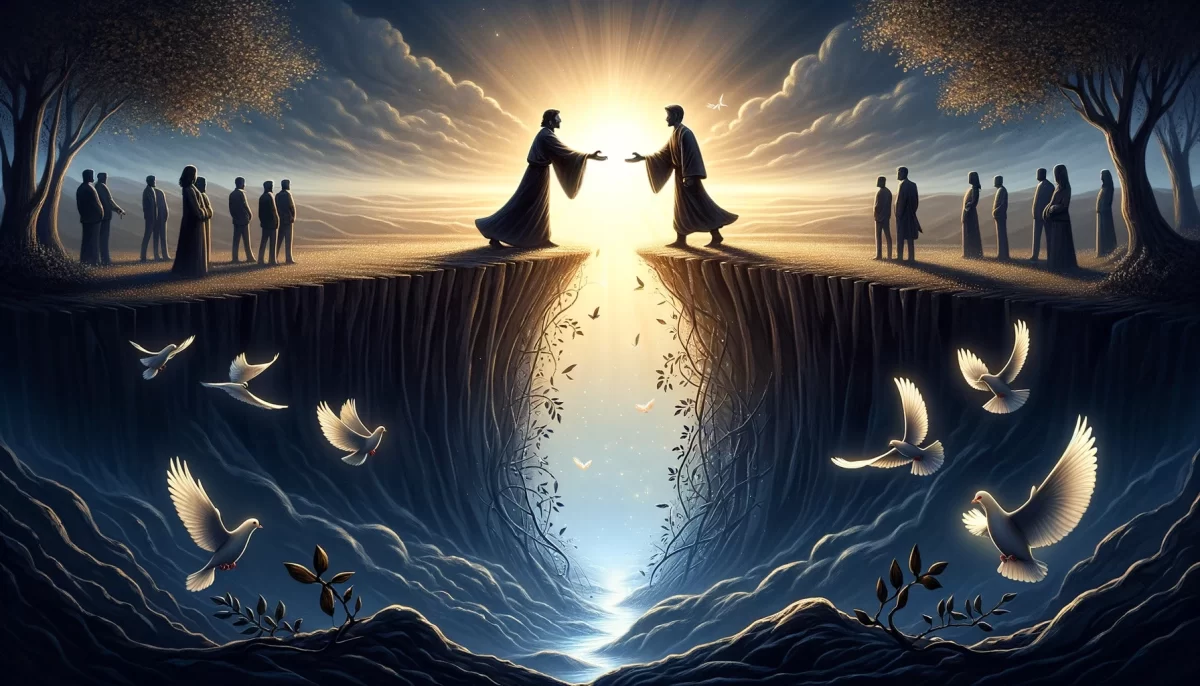
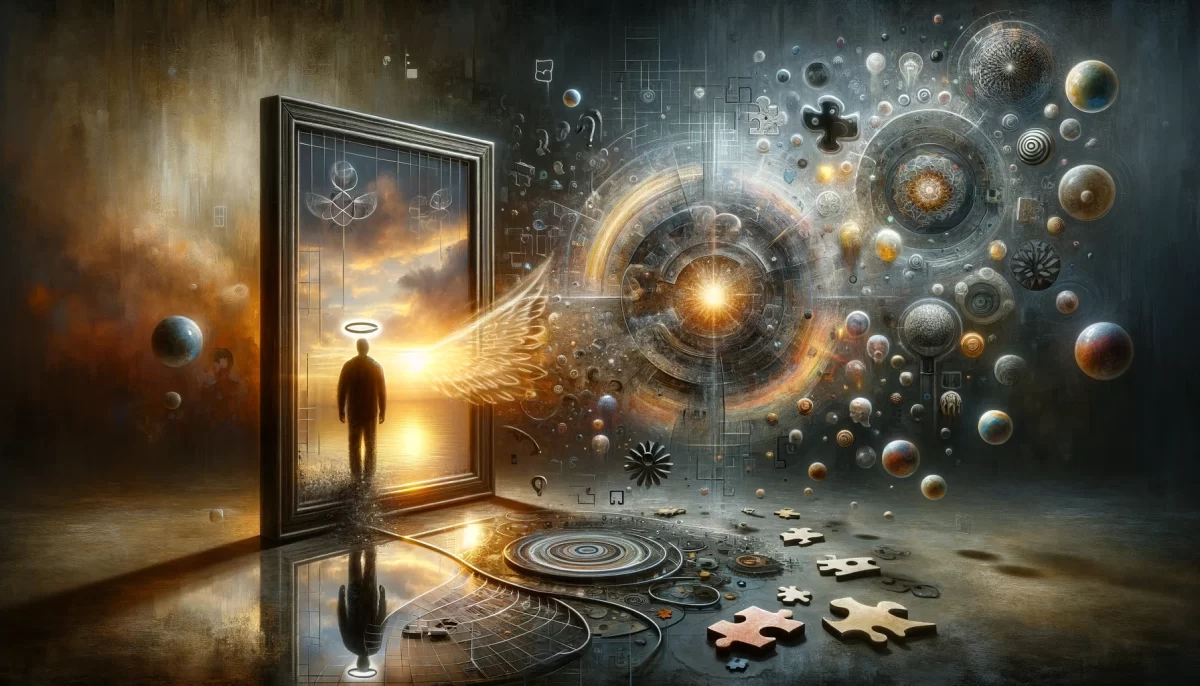
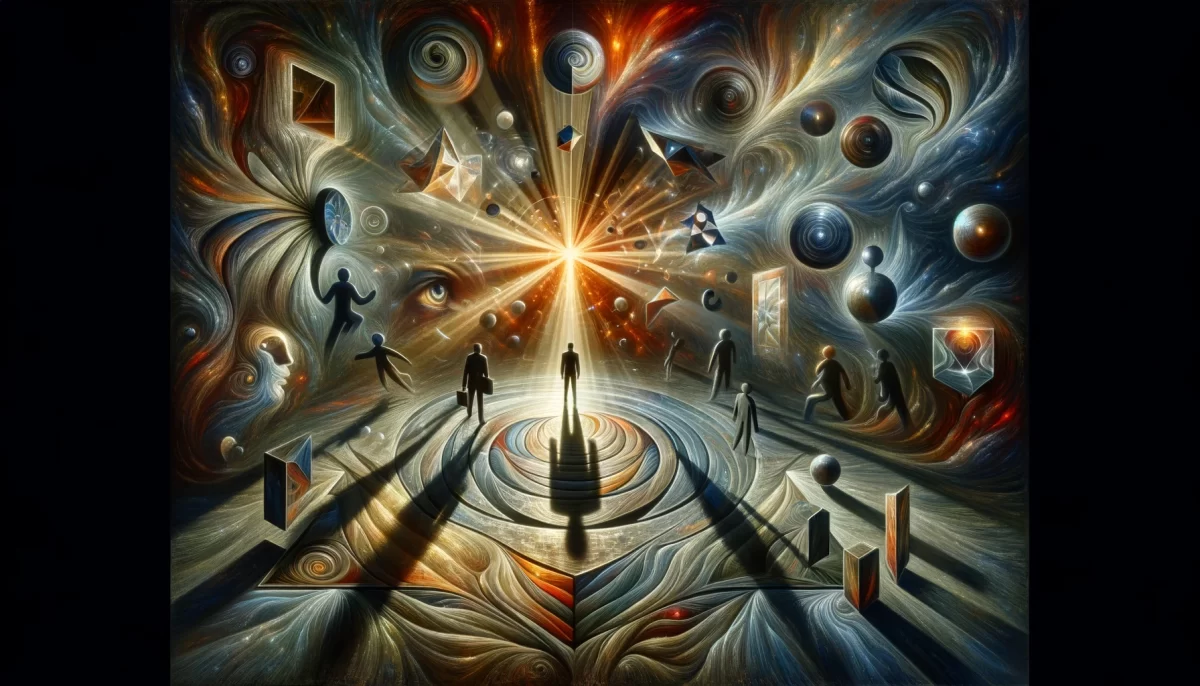

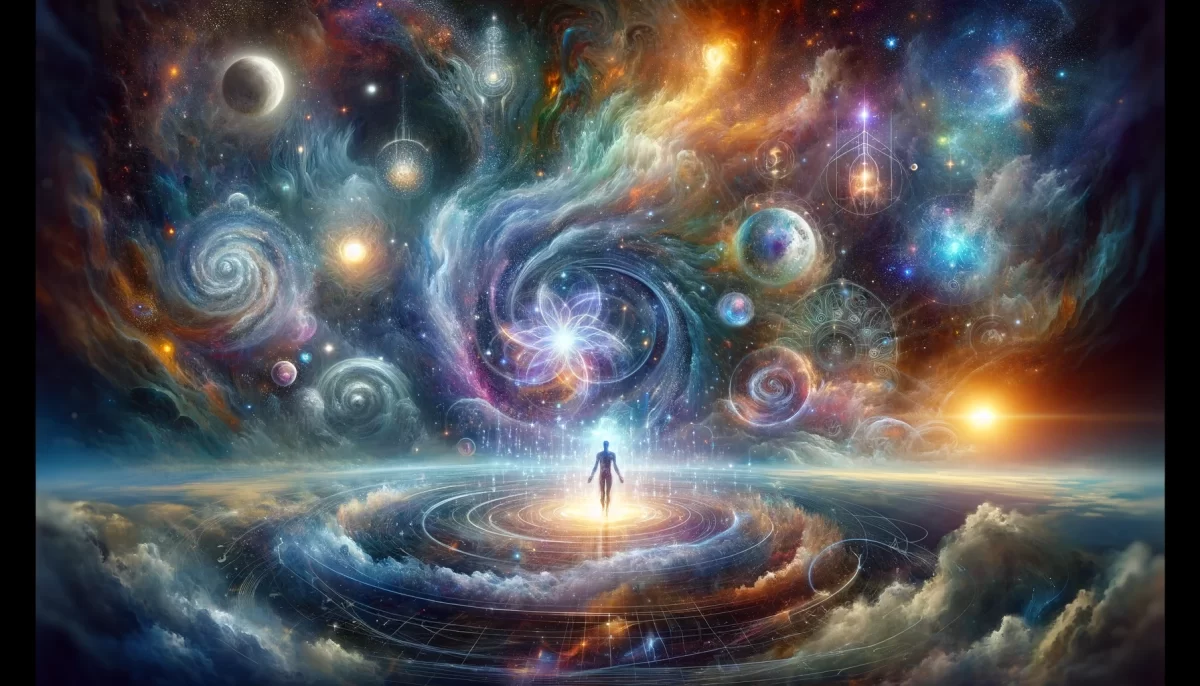

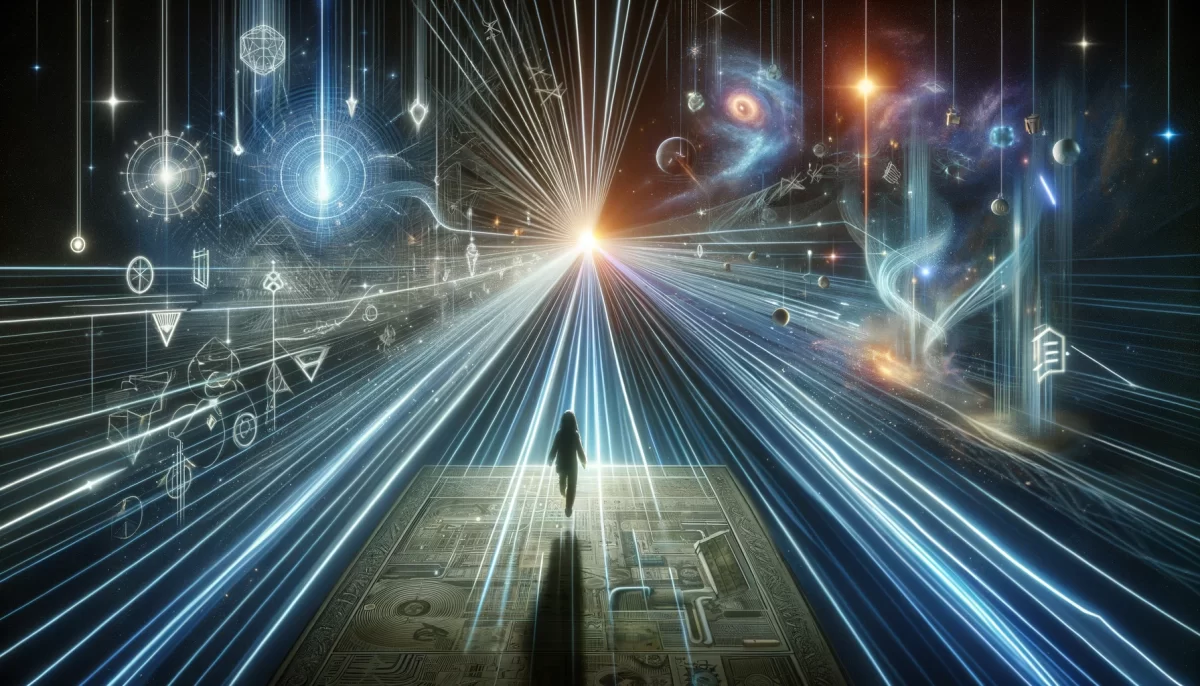
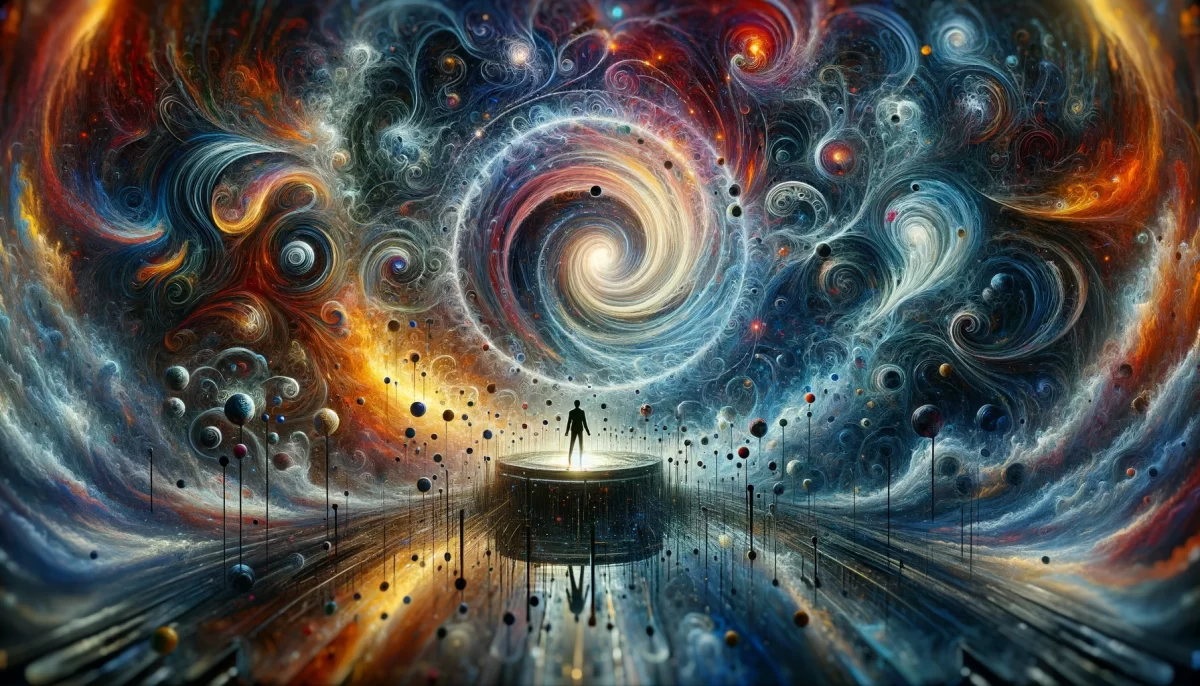
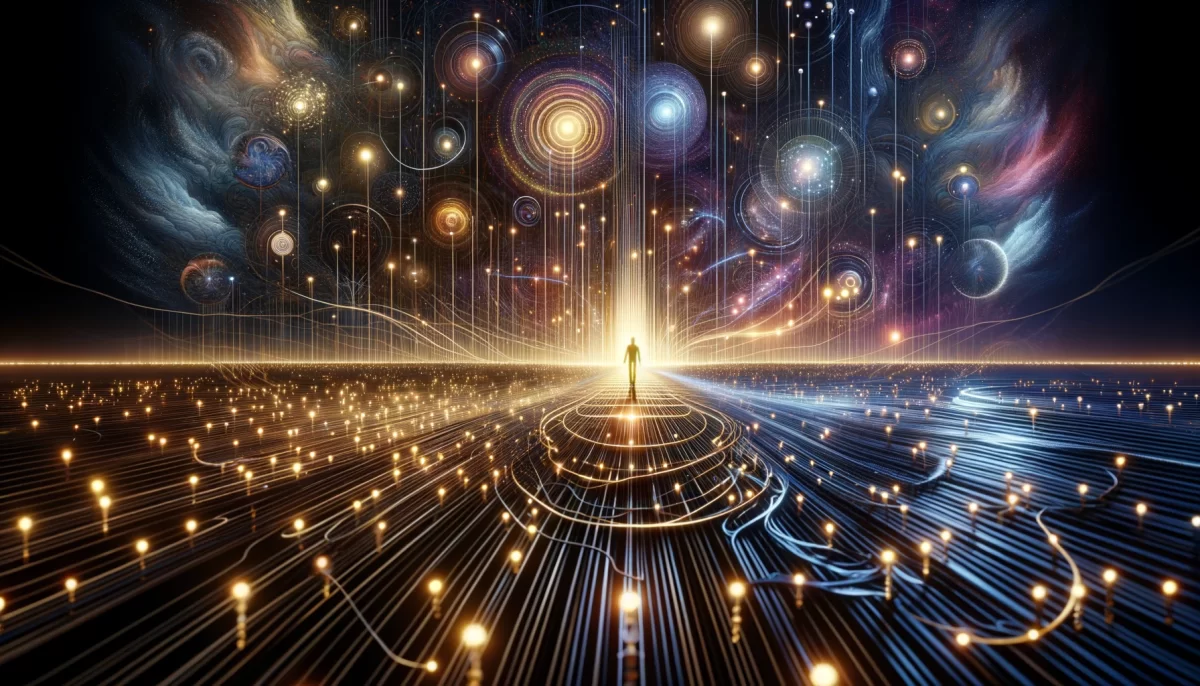
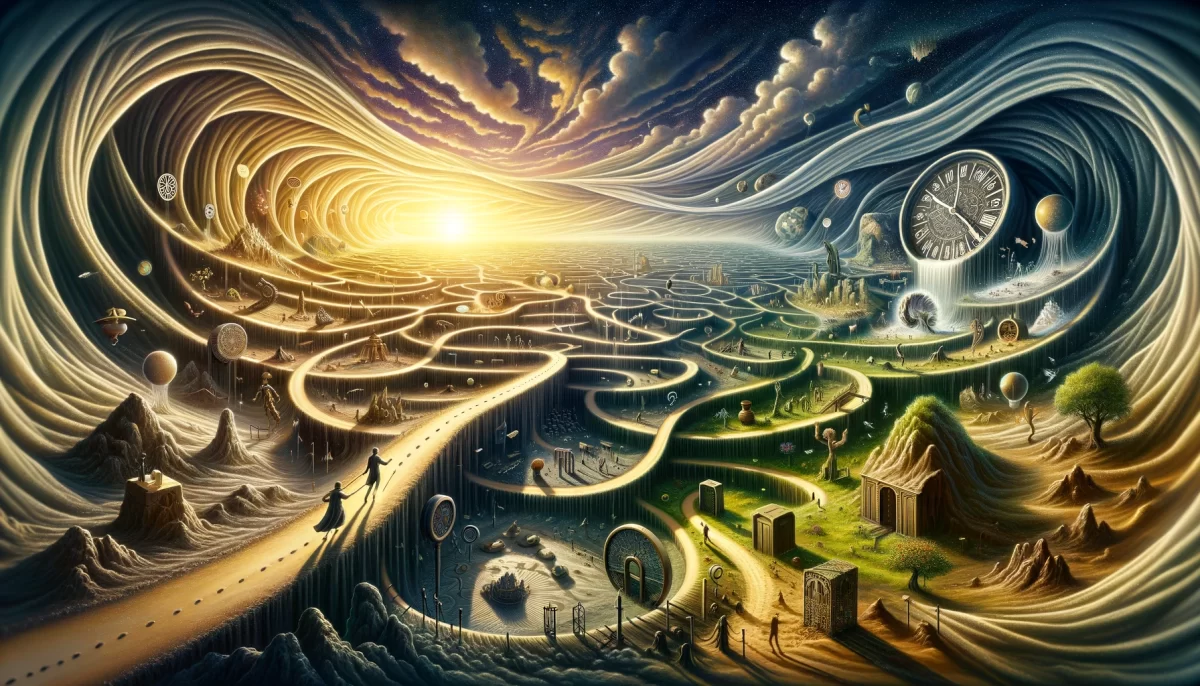
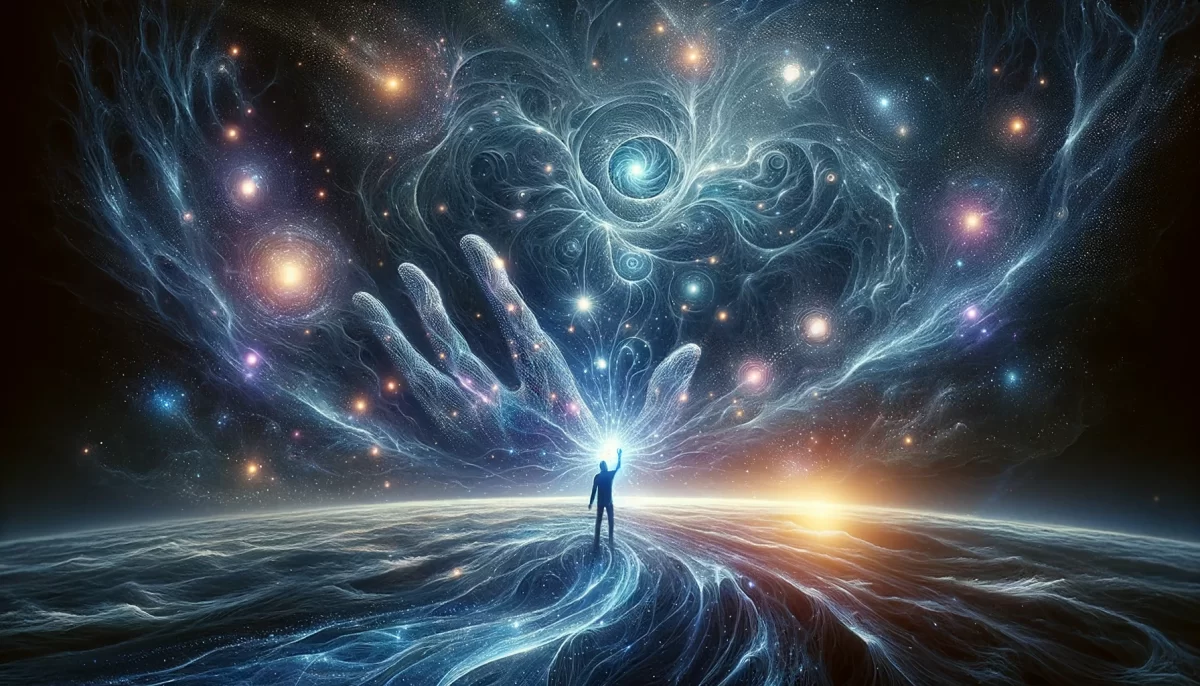
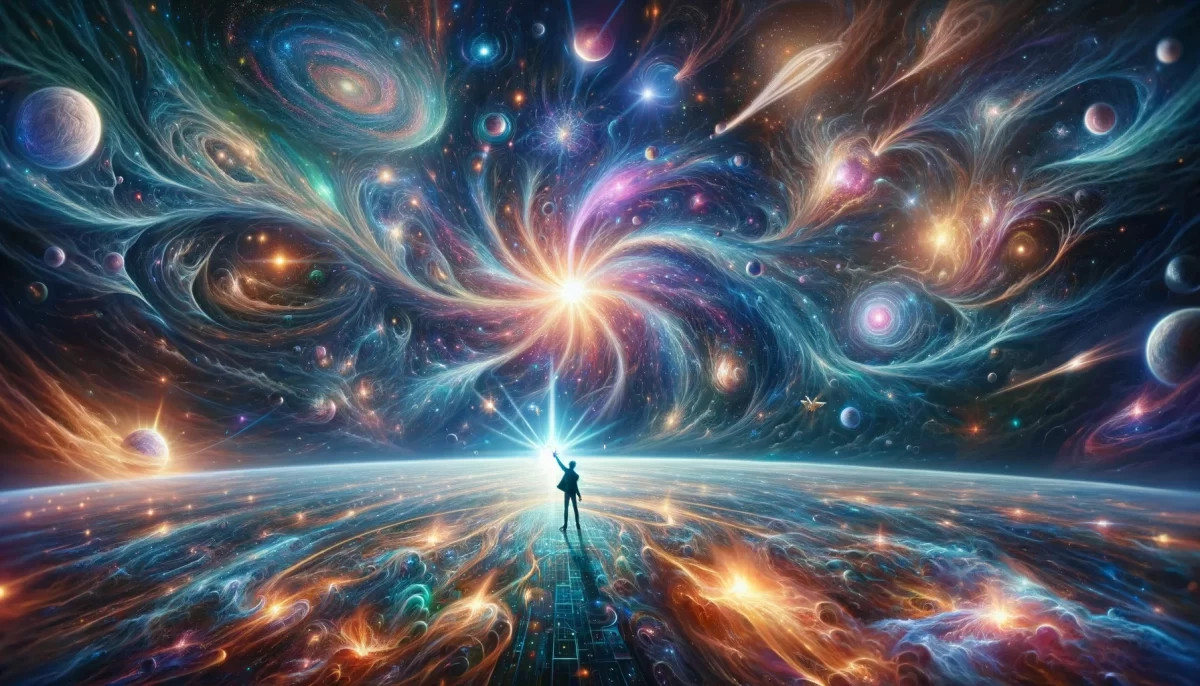
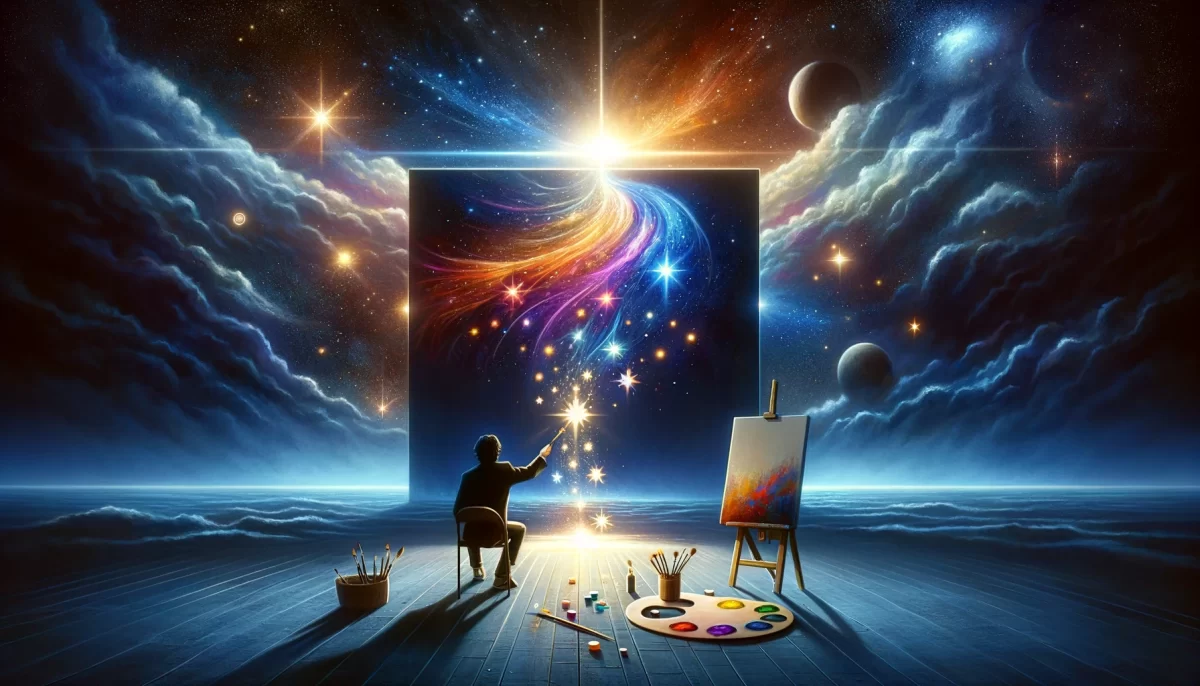
Leave a Reply